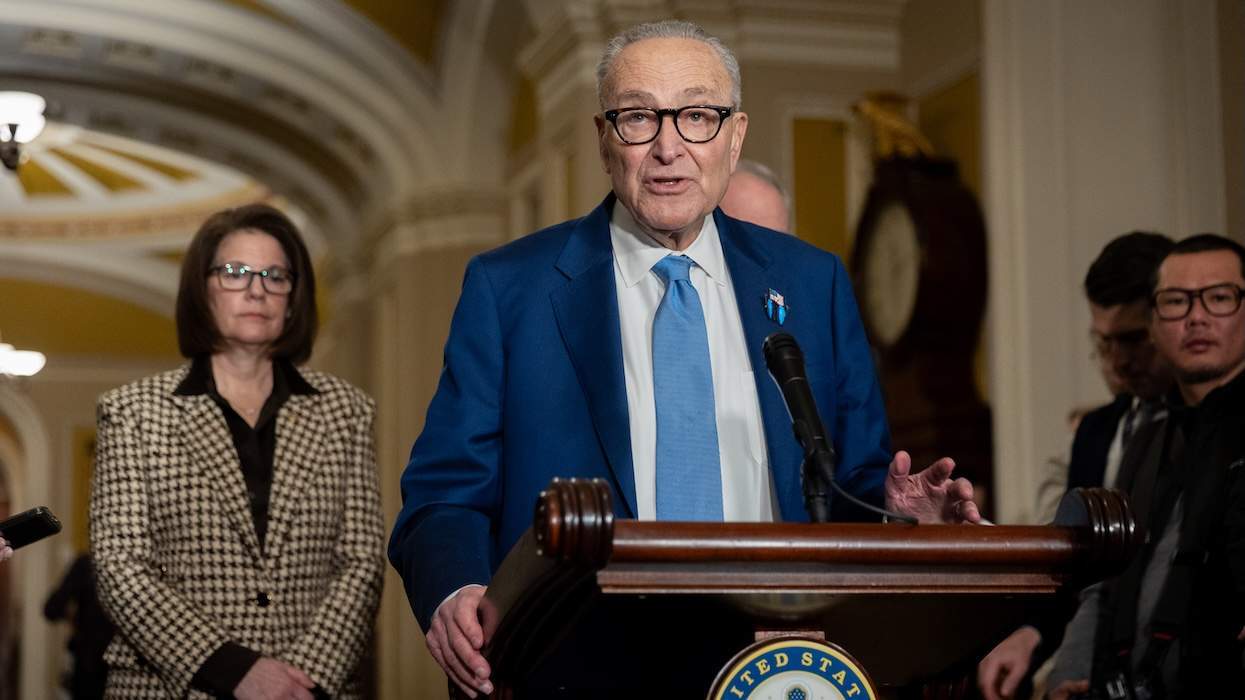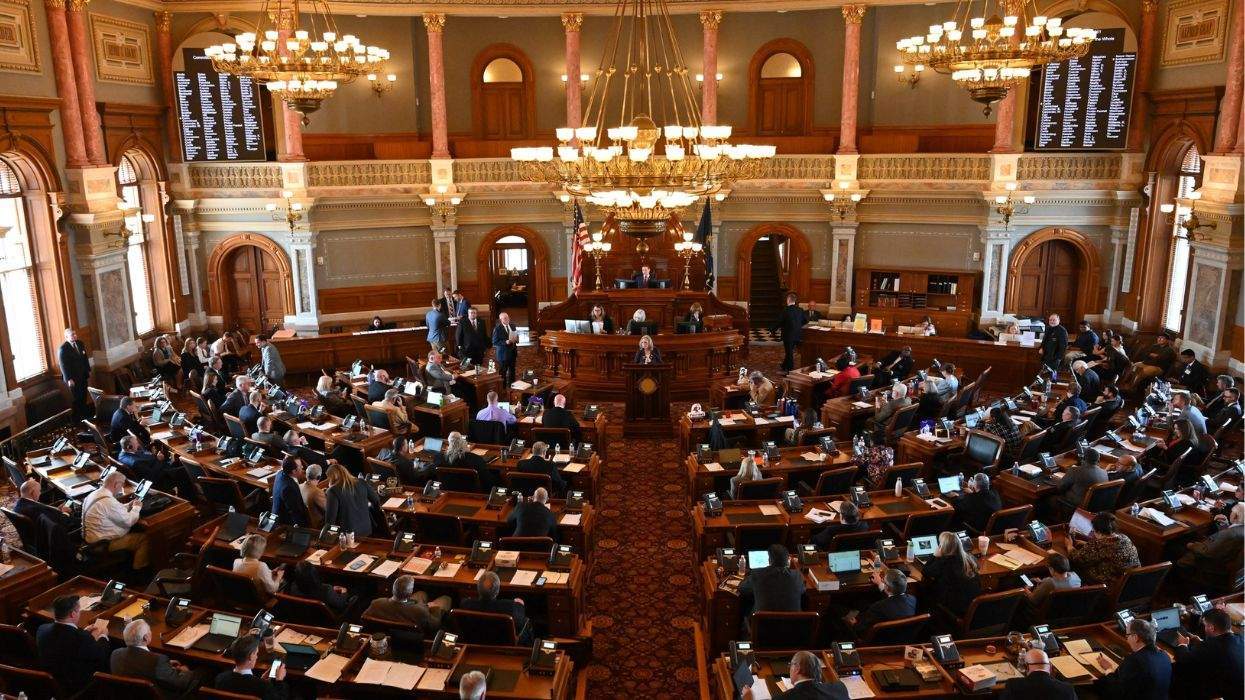Winning support for transgender people's access to the public restrooms of their choice can depend on something as simple as pointing out that probably everyone has used a restroom next to a trans person without knowing it.
That's one of the findings of a new report, "Tackling Transphobia in the Heartland," from Working America in partnership with Pride at Work, which discovered that while ignorance and negative stereotypes about transgender people are common among Americans, people can come to a place of support if they have enough information.
In the first two weeks of May, Working America canvassed 784 working- and middle-class voters in central Ohio -- in and around the capital city of Columbus -- asking them about a bill pending in the state legislature that would outlaw discrimination against LGBT people in employment, housing, and public accommodations and assure access to the public bathroom that aligns with a person's gender identity rather than the sex they were assigned at birth. They asked voters to sign a petition in support of the bill.
"While we anticipated support for policies protecting LGBTQ individuals from employment and housing discrimination, we didn't know how working- and middle-class voters in central Ohio would react to discussions about bathroom access for gender-nonconforming individuals," reads the report, released today. "We set out to learn how these voters would respond to conversations about the proposal that explicitly raised bathroom access."
Raising this issue "set a high bar" for support, the report notes, but not an insurmountable one. "Despite negative stereotypes of transgender people and a general lack of information among voters, canvassers were able to establish trust, hold a fruitful conversation with most voters and generate significant support across demographics," the report reads. "Overall, 41 percent of the people we spoke with signed the petition in support of the statewide measure." And some of those who did not sign did not necessarily oppose the legislation, as "even among people who did not sign the petition, canvassers rated more than half the people they spoke with as supportive."
The canvassers had to overcome voters' lack of information about the issue. "In our conversations at the doors, we found most people understood the term LGBT or LGBTQ, and several mentioned having a friend, co-worker or family member who was gay or lesbian," the report reads. "While a few people needed our canvassers to define the acronym, we encountered many more people who had never thought about transgender issues. One man, for example, did not understand that being transgender is different than cross-dressing. Other people we spoke with assumed nondiscrimination was already the law in Ohio."
To win voters' support, canvassers had to counter stereotypes of transgender people, emphasize the dangers they face when forced to use the wrong restroom, and point out that many cities in Ohio, including Columbus, already have laws providing for access to restrooms corresponding with a person's gender identity, and that there have been no problems as a result, the report notes. One canvasser persuaded a reluctant person, a Donald Trump voter, to sign the petition by saying, "We have probably all used the bathroom next to a transgender person without realizing it -- this just means ... that [everyone] can use the bathroom safely." The canvassers also had to make clear that a separate bathroom for trans people is not a workable solution, as separate is not equal, and installing such bathrooms would be a burden for businesses.
Age, party affiliation, and gender were key predictors of support. Among people younger than 50, 53 percent were willing to sign the petition; among those over 50, only 24 percent were. "Millennials seemed likely to take LGBTQ rights, including transgender people's right to use the restroom of their choice, as a matter of course," the report notes. Fifty-three percent of registered Democrats signed, compared to 29 percent of registered Republicans, but even some staunch conservatives proved persuadable. Women were slightly more supportive than men -- 43 percent versus 37 percent.
The organizations chose the Columbus area because of its politics and demographics, officials said. It's in the Midwest, less progressive than the coasts, but with voters who can potentially be moved. Columbus has an LGBT-inclusive nondiscrimination law but many of its suburbs, like the state as a whole, do not.
"Our project highlights the need for a broad and inclusive strategy when working to pass nondiscrimination laws," Jerame Davis, executive director of Pride at Work, told The Advocate. "Conservatives as well as progressives think LGBTQ people deserve basic dignity and respect in the workplace and in the public square. Now we have a better idea of how to talk with both groups to effect change."
"By talking with people and allowing for a back-and-forth, we were able to win broad support for ending discrimination in Ohio," added Matt Morrison, deputy director of Working America. "Stripping the right of a wedge issue they use to polarize and win elections is possible -- when we listen and have a respectful conversation with voters."
Pride at Work, a constituency group of the AFL-CIO, represents LGBT union members and their allies, and coordinates social justice efforts involving organized labor and LGBT people. Working America, also affiliated with the AFL-CIO, represents people who don't have a union on the job, and advocates for public policies to improve the lives of workers.















